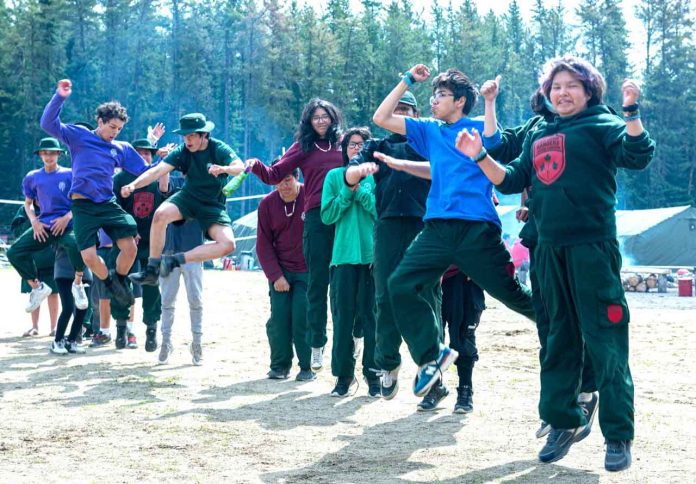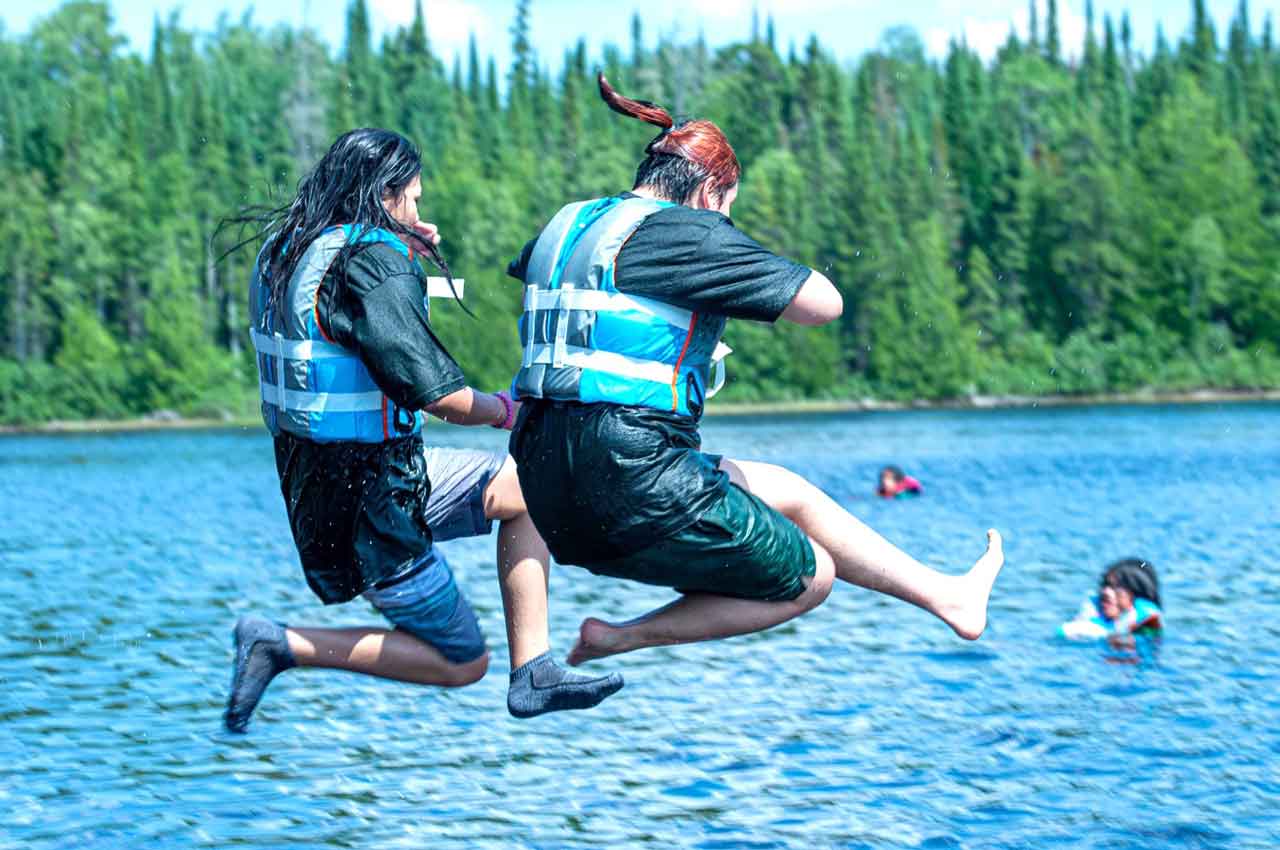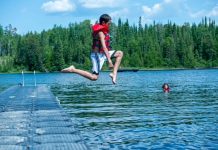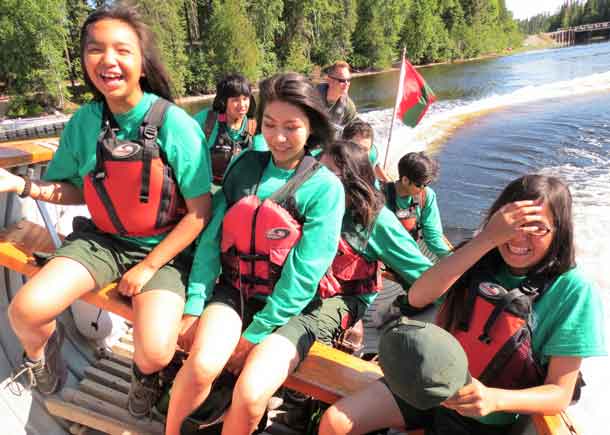
CAMP LOON – After being cancelled each of the last two summers because of the COVID-19 pandemic, Camp Loon, the popular Junior Canadian Ranger event that provides a week of advanced leadership training, was back last month.
“It was a great camp,” said Captain Courtney Giles, the provincial Junior Ranger training officer. “It was a successful training event for the Junior Rangers and the Canadian Rangers alike. They both learned a lot from it.
“I believe they enjoyed being able to finally attend a training event out of their home communities after the last two-and-a-half years of COVID restricting them from doing that.”

credit: Canadian Rangers
The tent camp was held in the bush on Springwater Lake, 50 kilometers north of Geraldton. The Junior Rangers is a Canadian Army program for youth aged 12 to 18 in remote and isolated communities across the Canadian North. In Ontario there are more than 700 Junior Rangers in 19 First Nations. The camp has been hugely popular with First Nation chiefs and councils.
The camp places great emphasis on safety on the land and water and in personal life styles.
“I believe that the safety aspects that are taught at Camp Loon in the skills training, like life jacket and helmet safety, will definitely be taken home by the Junior Rangers and be employed back in their home communities, knowing the importance of those safety skills,” Captain Giles said..
The camp provides the Junior Rangers with a range of activities that are not normally available to them in their small communities. They include specialized instruction with air rifles, boating, mountain biking driving all-terrain vehicles, first aid, and traditional arts and crafts.
“The Junior Rangers also enjoyed meeting people from different communities across Northern Ontario,” Captain Giles said, “and participating in the different training sites like the boat site, canoe site, and the ATV site and learning how to properly practice those safety skills.”
There are no ATV driving courses available to people living in remote First Nation communities. As a result injuries and deaths occur. “We teach the Junior Rangers, some of whom have never ridden an ATV, how to drive an ATV safely,” she said. “We teach them things like proper turning and leaning techniques, and how to use brakes safely. They take that home with them.”
The camp is usually attended by around 150 Junior Rangers but concerns about COVID in many of the First Nations reduced the number of youth who attended it. This year the camp was attended by 59 Junior Rangers from 17 First Nations, as well as 22 Canadian Rangers, who are part-time army reservists and acted as instructors, and 45 other military personnel to run it.
The first Camp Loon was held in 2000 at Constance Lake First Nation with others following at several First Nations before moving to its current location near Geraldton.
The camp’s opening and closing ceremonies featured drumming and two traditional dancers, Master Corporal Donald Sutherland, from Constance Lake, and Master Corporal Redfern Wesley, from Kashechewan.
(Sergeant Peter Moon is a Ranger with the 3rd Canadian Ranger Patrol Group at Canadian Forces Base Borden.)





